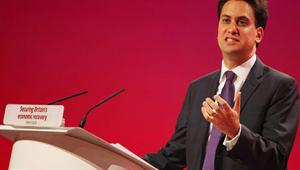By Richard Johnstone | 5 January 2015
Shadow chancellor Ed Balls has called on the Treasury to change how it analyses party policies ahead of the general election after claiming the current regime could lead to misleading information about spending plans.
In a letter to Treasury permanent secretary Sir Nicholas Macpherson yesterday, Balls said a revised regime could also help ensure the policies of all the main parties were properly analysed ahead of May’s election.
Balls said that Chancellor George Osborne had rejected a Labour plan to allow the Office for Budget Responsibility to analyse the policy proposals of different parties.
Under the current regime, Treasury officials can carry out assessments based on assumptions provided by party political special advisers.
However, Balls said this risked putting civil servants in an impossible position as he accused Conservative advisers of providing ‘blatantly false and politically motivated assumptions’.
The Treasury’s costings process ‘needs to be urgently reformed so that the public are not misled’, he said.
A new regime should be put in place ahead of the election so the Treasury can cost every spending and tax manifesto proposal, with parties themselves able to clarify costs as part of the process.
‘I would like to offer my help in ensuring that up-to-date and correct assumptions about Labour policies are used when Treasury officials are requested to cost them,’ he added.
Balls' comments come as the Treasury published a number of policy costings for Labour party proposals.
Among the findings, the Treasury estimated it could cost up to £70m a year to create local versions of Public Accounts Committee to boost scrutiny of devolved spending, although this would fall to between £25m and £50m if they replaced local audit committees.
Labour plan to guarantee GP appointments within 48 hours would cost more than £1.3bn a year, an analysis found, but it would likely benefit people who are intensive users of GP services – the elderly, infants, pregnant women, and people with disabilities.
Plans to ensure that public sector contractors hire more apprentices could cost between £0.6bn to £1.4bn over the next parliament, another analysis concluded.





















